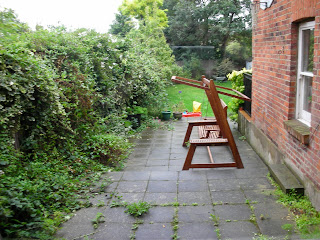Ladies and gentlemen, we present to you:
THE WRITING COMPETITION ENTRANTS' MANIFESTO
We are writers: entrants into many competitions, winners of too few (runner-up is nice and all that, but let’s not kid ourselves, it’s the winning that matters. Oh, okay, and the writing. But mostly the winning).
We are also neurotic. It’s part of the job spec. That’s why we are writing in the pluralis
modestiae. (We had to look that up on Wiki: modesty is the sister of our particular neurosis)
We spend hours and days sitting in front of glowing screens or scribbling on scraps of paper, crafting, shaping, honing. Our stories are our babies, we love them (even the ugly ones, though sometimes they have to sit on the naughty step).
So, there we are, neurotic parents of babies that only a parent could love, and what do we do? We send those babies out into the world to be judged.
Give us a set of rules and we will agonise over every single, insignificant detail, worried that one misstep will send our beloved creation straight into the recycling bin, unread. Entry deadlines, shortlist dates and prize money pots are scribbled on sticky notes. Fridges, notice boards and laptop screens are covered in the yellow slips of potentiality and hopeful dreams. We study eligibility criteria and submission guidelines. We lick stamps, reformat entire manuscripts and pluck sentences of outstanding beauty and genius out of finished pieces, just to fit the word-limits. We trudge to the Post Office with our brown envelopes stuffed and sealed, or hit the 'submit' button on the keyboard five minutes before the deadline, our eyes swimming with word counts, font mandates, file type restrictions.
But, fellow writers, stop and think. Where would these competitions be without us and our
stories? Where would they get their entry fees, their publicity, their sponsorship? That’s right, without us, they are nothing! And it’s about time they listened to OUR rules.
And so we present to you: The Writers’ Manifesto for Consistency and Clarity in Competition Guidelines. Each and every writing competition should adhere to these guidelines or WE WON’T SUBMIT (that’ll show ‘em).
The Writing Competition Entrants’ Manifesto
1. Word Count. Pretty straightforward, right? Wrong. Different software counts words in
different ways – and some programmes count things as words that clearly aren’t (an asterisk is not a word, Word. Asterix was a Gaul, but that’s another story). Tell us which software is your gold
standard for word-count. And tell us if the title is included (here’s a hint: it isn’t).
2. Deadline. Now we can submit electronically, a date is not enough. We need a time as well. Midnight is always a good choice.
3. Filename. Just make it the title of the story. It’s how we’ve saved it anyway, but tell us too whether we need to add or omit our name. And as far as unique identifiers go, there isn’t a literary
award in the world that requires 16bit encryption so keep it short.
4. Format. Doc, docx, pdf, rtf, blt, whatever. Just be specific. Pick one and stick with it. And if you are going to upload any of the entries anonymously, please ensure that you check the properties tab to make sure that any inquisitive right-clickers can’t see our name, address, email and telephone number.
5. Cover sheets: if you must insist on us having a cover sheet, does it go in the story document or is it a separate attachment? No, seriously, we can lose a good half-hour worrying about things like this. If you want it in the one document and you want the pages numbered, do we really have to wrestle with trying to take the number off the cover sheet and get the numbers to start at number 1 on the second page when computer says no? *contemplates applying Tippex to computer screen because that would totally solve the problem*
6. Exactly where can we put our names? Polite answers only, please.
7. Long-lists, what are they good for? Absolutely nothing.
8. Short-lists. Okay, we like short-lists, that’s a credit we can take to bank. But here’s the thing: sometimes a short-list is a list of people who might still win; sometimes it’s a list of people who nearly won, but here’s the names of the people who already did. Sometimes the people on the short-list are told before it’s published, sometimes seeing their name on the screen is the first they know about it. Follow a few writers on Twitter and you will see how we agonise about short-lists. Has anybody heard anything yet? Will the short-listed people get an email first? Anyone stalking the judges on Facebook? Has the deadline been extended? HAS ANYBODY HEARD ANYTHING YET?
For the sake of our sanity, state when the short-list will be published, and tell us if the writers on the list will be emailed first. Simple. Of course, that won’t stop us believing the email got lost in the ether, and scanning the lists just in case. But that’s our problem, not yours.
9. Each and every competition shall submit the rules and guidelines to a consultant writer before advertising the competition. That writer shall go through the process as if they were submitting. Nine of ten times they’ll ask you for clarification. Better one writer emailing you before the competition starts than hundreds a day before the deadline.
10. And remember, always, that without us, there is no competition.
Thank you for your attention and we hope we can assume that all competitions will one day
abide by these simple suggestions.
You can view this manifesto in spiffy pdf format by clicking here.









